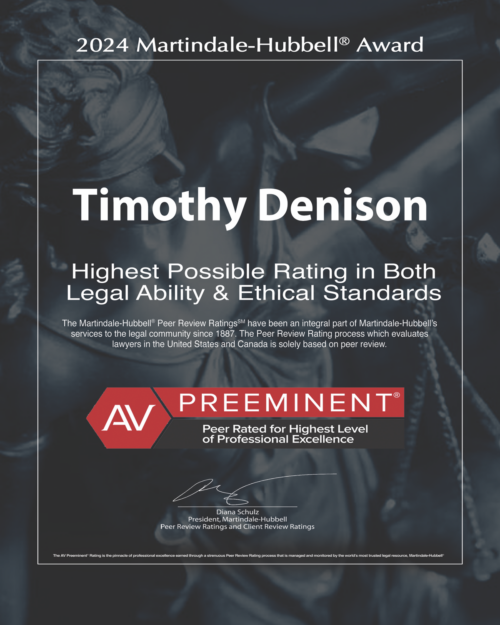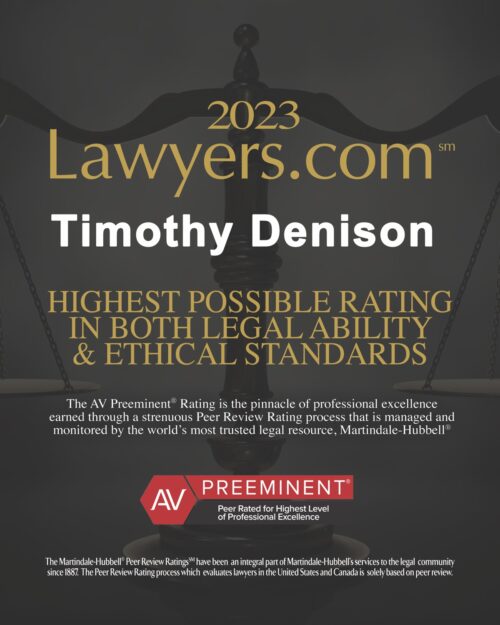Ten Rules for Avoiding a Bar Complaint
I have developed ten simple rules for avoiding a bar complaint. If you’re a lawyer, somewhere, sometime and somehow, the mere mention of your Bar Association has involuntarily struck fear into your heart. Heart palpitations begin, sweat breaks out and cold chills reign supreme. And that reaction comes naturally for all of us, regardless of whether we’ve been completely ethical in our behavior or completely unethical in our actions. I have traveled and lectured frequently for years now on the interrelated subjects of bar complaints, lawyer assistance programs, professional responsibility and legal ethics as well as attorney discipline. Over time and experience, I have developed a list of ten (10) simple rules that, if followed, will either completely eliminate or at a minimum provide a solid defense to ninety (90%)percent of the subject matter of bar complaints brought today.
1. CALL YOUR CLIENTS BACK (at least within a week)! Then document the call or message left on the outside of your file. If you can’t call them back, have your secretary, legal assistant or paralegal return the call for you and distill the reason for the call and determine what the client needs to know or be done. Your staff making contact should also be trained to document each instance of contact with the client on the file jacket or by letter or electronic mail. Communication by electronic mail is fast, easy, allows for a very fast response time, can be done from court or anywhere, and no additional work or documentation is required because the email speaks for itself and is it’s own record.
2. SEND A LETTER, EMAIL OR STATUS REPORT EVRY THIRTY (30) DAYS. This is the simplest way to defend a claim that the client was not kept informed of what was happening with his or her case. You can develop a form letter that addresses many of the recurring questions and issues while advising them of their case status in a few short plugged in sentences without having to reinvent the wheel. A letter, email or status report from you once a month will keep the client happy and assure them that you recall they exist and are working diligently on their case.
3. DON’T MAKE PROMISES YOU CAN’T DELIVER JUST TO BUY TIME OR MAKE YOURSELF LOOK BETTER. It never works out. A much better approach instead of promising the moon is to give very conservative estimates, because let’s face it…in this business, anything can happen, of time lines and projected happenings in the case. Then, when you accomplish it sooner than projected, the client will usually be grateful for you being ahead of schedule than being behind the eight ball for being late because you could not deliver on your promise in a timely fashion.
4. BE HONEST, FRANK, AND DIRECT WITH YOUR CLIENT. All lawyers have egos and egos can easily get the best of us, especially when talking to a client and trying to convey your greatness as a lawyer. While you can pontificate all you like on your skills, abilities and the varied and potential outcomes, facts beyond change will always be facts beyond change, no matter what you do. Again, rather than making grand promises that often go unfulfilled, a conservative estimate of your assessment of the case and the varied outcomes is in order. That way, you haven’t created any great expectations that you can’t meet and, as we all know from experience, many times you will far exceed your conservative estimate of the resolution, leaving the client amazed by your prowess and abilities after the case is completed.
5. DON’T LIE TO YOUR CLIENTS (UNDER ANY CIRUMSTANCES AND FOR ANY REASON). Misrepresentation and dishonesty are two of the more common complaints made against lawyers. If proven, the sanctions and penalties can often be severe, especially if tied to an 8.3 violation alleging criminal acts or conduct by the lawyer in the course of the misrepresentation or dishonesty. “The truth shall set you free…”
6. DO NOT COMMINGLE (MIX) CLIENT FUNDS WITH ATTORNEY FUNDS (FOR ANY REASON). This is a common mistake many lawyers make despite the simple fact that it should never happen. It is also guaranteed to warrant disciplinary action if discovered. Client funds go into your trust of escrow account as do fees paid by clients that are yet to be earned by the attorney. Attorney funds and earned fees may go directly into the attorney operating account for immediate use. There is no reason to ever mix their funds and your funds. This error commonly occurs when something much larger and nefarious is going on such as the attorney using client funds or worse, stealing client funds. Keep the money separate. It really is that simple.
7. DO NOT HAVE SEX WITH YOUR CLIENTS! If a dispute occurs between the lawyer and the client, the client will turn on you quicker than an ex-wife with PMS. If you have a pre-existing sexual relationship with someone prior to their becoming a client and prior to you undertaking representation, then you may represent them (although better practice would dictate that you get someone else to handle the matter). You cannot under any circumstances begin a sexual relationship with a client (excluding pre-existing) while you are representing them. An oft asked question now is may I engage in a sexual relationship with a client after the representation is concluded. The prevailing view of the majority of bar associations today is no, although that question raises some First Amendment issues to say the least. I do not believe any such litigation to determine the answer has come to fruition in Kentucky, so stay tuned to see how it plays out.
8. IF YOU DON’T LIKE THE CLIENT AT FIRST BLUSH, DO NOT ACCEPT THEIR MONEY AND DO NOT ALLOW THEM TO RETAIN YOU. Your gut instincts are always right. Never take a client you dislike just for the money. You will only resent and dislike them more as time goes on, especially after they repeatedly call you and/or drop by thirty times a day every day for six weeks. We can generally sense who is going to be a good client and who is going to be a problem client from the getgo. If you undertake representation and then discover you don’t like them after representation has commenced, send them a disengagement letter and refund the unearned portion of the retainer. In any event, get rid of them!!!! You don’t need the headache.
9. ALWAYS, ALWAYS, ALWAYS SIGN A CONTRACT. You can’t trust anyone these days, especially in this profession. So many times it is so easy to think “It’ll be okay if I don’t get a contract here, it’s just a small case.” Small cases turn into big cases. Small disputes turn into big disputes. You seriously need the protections and advantages that any attorney-client contract gives you. Take the extra time to get a signed contract from the client. You will NEVER be sorry.
10. NO GOOD DEED GOES UNPUNISHED. This is the cardinal rule you must never break. This is the universal maxim we must live by. Don’t do any good deeds or “help out” anyone, for any reason, ever, until and unless you have first calculated the number of hours you would expect to spend in resolving the matter, then multiplying those hours by ten (10). If, after you do the math, you are still prepared to donate that time or monetary equivalency to do the good deed, at least you have been warned and you have made a voluntary, knowing, and conscious (even if not intelligent) decision to do the good deed. Good luck with that!















